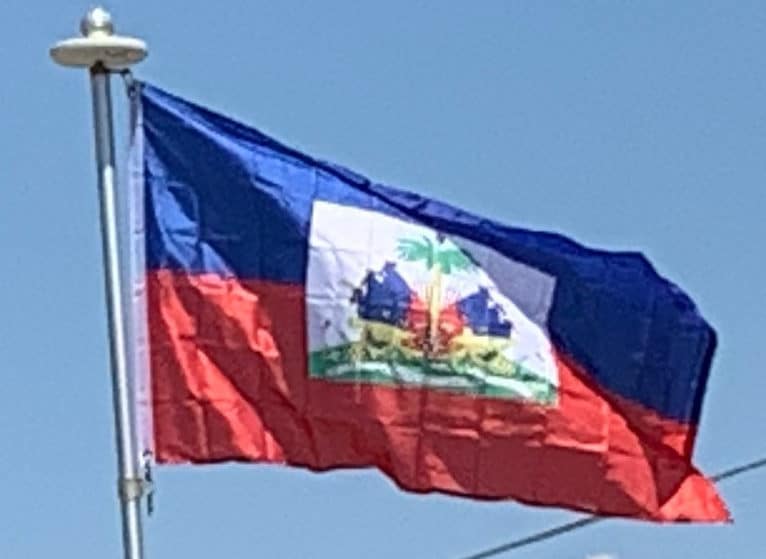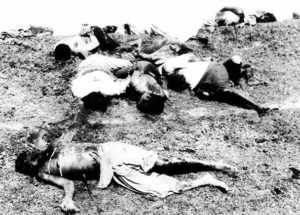
President Vincent became increasingly dictatorial, and resigned under US pressure in 1941, being replaced by Élie Lescot (1941–46). In 1941, during the Second World War, Lescot declared war on Japan (8 December), Germany (12 December), Italy (12 December), Bulgaria (24 December), Hungary (24 December) and Romania (24 December). Out of these six Axis countries, only Romania reciprocated, declaring war on Haiti on the same day (24 December 1941). On 27 September 1945, Haiti became a founding member of the United Nations (the successor to the League of Nations, of which Haiti was also a founding member).
In 1946 Lescot was overthrown by the military, with Dumarsais Estimé later becoming the new president (1946–50). He sought to improve the economy and education, and to boost the role of black Haitians, however as he sought to consolidate his rule he too was overthrown in a coup led by Paul Magloire, who replaced him as president (1950–56).
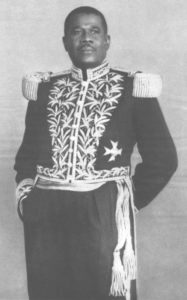
Firmly anti-Communist, he was supported by the United States; with greater political stability tourists started to visit Haiti. The waterfront area of Port-au-Prince was redeveloped to allow cruise ship passengers to walk from the docks to cultural attractions. Celebrities such as Truman Capote and Noël Coward visited Haiti; the era is captured in Graham Greene’s 1966 novel The Comedians.
Duvalier Dynasty (1957–1986):
In 1956–57 Haiti underwent severe political turmoil; Magloire was forced to resign and leave the country in 1956 and he was followed by four short-lived presidencies. In the September 1957 election Dr. François Duvalier was elected President of Haiti. Known as ‘Papa Doc’ and initially popular, Duvalier remained President until his death in 1971.
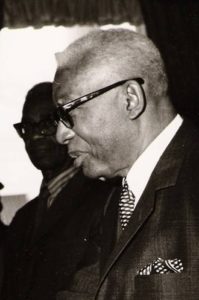
He advanced black interests in the public sector, where over time, people of color had predominated as the educated urban elite. Not trusting the army, despite his frequent purges of officers deemed disloyal, Duvalier created a private militia known as Tontons Macoutes (“Bogeymen”), which maintained order by terrorizing the populace and political opponents. In 1964 Duvalier proclaimed himself ‘President for Life’; an uprising against his rule that year in Jérémie was violently suppressed, with the ringleaders publicly executed and hundreds of mixed-raced citizens in the town killed. The bulk of the educated and professional class began leaving the country, and corruption became widespread. Duvalier sought to create a personality cult, identifying himself with Baron Samedi, one of the loa, or spirits, of Haitian Vodou. Despite the well-publicized abuses under his rule, Duvalier’s firm anti-Communism earned him the support of the Americans, who burnished the country with aid.
In 1971 Duvalier died, and he was succeeded by his son Jean-Claude Duvalier, nicknamed ‘Baby Doc’, who ruled until 1986.
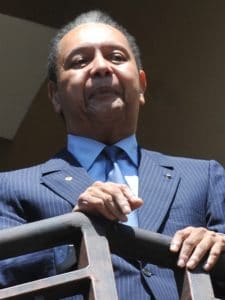
He largely continued his father’s policies, though curbed some of the worst excesses in order to court international respectability. Tourism, which had nosedived in Papa Doc’s time, again became a growing industry. However as the economy continued to decline Baby Doc’s grip on power began to weaken. Haiti’s pig population was slaughtered following an outbreak of swine fever in the late 1970s, causing hardship to rural communities who used them as an investment. The opposition became more vocal, bolstered by a visit to the country by Pope John Paul II in 1983, who publicly lambasted the president. Demonstrations occurred in Gonaïves in 1985 which then spread across the country; under pressure from the United States, Duvalier left the country for France in February 1986.
